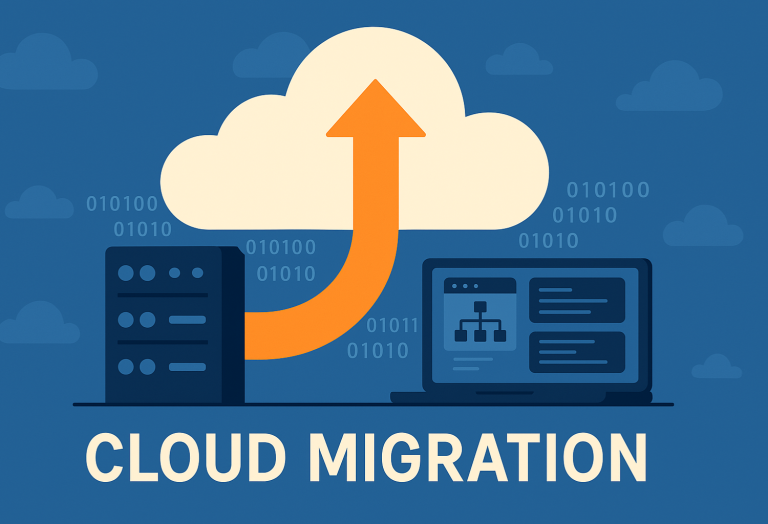
In the post-pandemic era, every organization expects fast and effective services to improve productivity and efficiency to establish a profitable business. This makes managed IT services essential for organizations to get efficient IT services, maintain a good quality IT infrastructure and reduce IT expenses. Organizations look for managed service providers (MSPs) to stay competitive in this fast-changing market and to get innovative and customized services. This article explores how MSPs can harness AI and automation to overcome challenges, deliver innovative services, and improve their profitability.
To meet the ever-changing requirements of the market, MSPs face multiple challenges, like
- Ever-evolving tech advancement
- Limited talent pool with appropriate skill sets
- More work to complete with limited resources
- Budget crunch
- Time shortage
MSPs need to overcome their internal challenges and provide innovative services to their clients in the digital business, satisfy their customers, and also improve their profit. In such a situation, artificial intelligence (AI)-powered automation can help MSPs to be more efficient in serving their customers and improve their business.
Artificial intelligence is one of the advanced processes where human intelligence is mimicked through software and performs several works that needs human thought process. Therefore, AI-powered automation can help managed IT services companies to automate some of their services with no or partial human intervention. It helps to provide their customers with error-free, fast, and quality services without investing in substantial human resources. The MSPs have to provide services to several clients in parallel. So, AI-powered automation tools can be supportive and helpful for them to meet their customers’ requirements.
MSPs can utilize the power of AI-powered tools to identify the customer’s pain points and provide a more customized solution. For example, the implementation of chatbots to interact with end-users and provide them immediate responses to solve simple issues can minimize the load on dedicated IT professionals for critical IT issues.
Specially designed tools for MSPs backed by IT automation, Hyperautomation, or IT process automation (ITPA) are very useful. Some tools are supported by technologies like Robotic Process Automation (RPA), Integration platform as a service (iPaaS), etc., which can significantly improve the service quality of MSPs. Let’s learn how MSPs can improve their services using AI-powered automation.
5 Ways MSPs can utilize AI-Powered Automation to improve their services
- Resource Optimization and Improve Productivity:
For MSPs, it is always a considerable challenge to develop and implement a process workflow that utilizes all available resources in the most optimized and efficient way. With AI-powered process automation, one can centrally support and manage a large number of remote data centres from one single network operations center with limited resources.
Managed services companies always have to handle multiple customers’ demands and deal with several manual tasks, which is quite time-consuming. It is important to address those manual tasks timely and error-free to keep your customers satisfied.
AI-powered automation can be an excellent solution for managing repetitive and time-consuming daily tasks, such as user authentication. Moreover, automation enables MSPs to adopt a tailor-made approach to streamline internal workflow processes. Additionally, AI-powered automation tools are flexible and customizable, catering to each user’s individual requirements. Consequently, automation allows you to complete simple, repetitive tasks quickly while freeing your in-house staff to concentrate on more critical and strategic tasks that require human insight and intelligence.
- Meeting Service Level Agreements (SLAs):
Meeting SLAs is critical for any MSP to satisfy customers, build a positive market reputation, and get repeat business. Automating minor and repetitive tasks, like monitoring, password generation, etc., help your organization to improve overall service quality. Auto-monitoring can catch errors or risks fast and without failing and notifies the appropriate team about issues. So, the issues or concerns can be taken care of, and your customers receive immediate assistance. Similarly, auto-assignment and auto-routing of tickets are beneficial to assign the tickets promptly to the right person and help quickly solve issues.
In the current situation, especially with remote working culture, communication plays a crucial role in improving turnaround time and reducing downtime. Without automation, you may have to face costly human errors, which can reduce the profitability of your organization. Automation helps to improve bi-directional communication and facilitates remotely controlled execution of processes. Automated monitoring tools alert MSPs to network or server issues, enabling quick resolutions.
- Minimize Operational Costs:
While initial AI automation costs may be high, it ultimately saves money by reducing reliance on human staff. Plus, automated processes are free of human errors and comparatively faster than the manual workforce.
By freeing in-house staff from routine tasks, MSPs can utilize their resources for more complex tasks. AI-powered automation can easily take charge of several L1-level routine jobs like handling simple queries, service requests, etc. System automation also helps to improve recovery time. So, improved and fast services and minimal downtime help to keep the customer satisfied and minimize the risk of penalties.
- Save Time:
In this fast world, everyone looks for quick responses and services. Automation enables MSPs to quickly handle routine IT tasks without human intervention. Along with time-saving, automation also helps in performance optimization. Time-saving automation enables MSPs to serve more customers efficiently while maintaining high-quality services.
- Retaining Customers:
A satisfied customer is the best campaign for any business. Therefore, customer satisfaction is the key for every managed IT services organization.
To satisfy customers, MSPs should leverage automation and provide proactive services. Adopting AI-powered automation helps managed service providers deliver fast, effective, and accurate solutions to client needs.
Conclusion
MSPs can leverage artificial intelligence as well as automation to offer their customers the best services. Automation enables MSPs to efficiently handle repetitive IT tasks quickly and accurately, often with minimal human involvement. AI-powered automation helps MSPs to not only serve their consumers better and keep them satisfied but also minimize operational expenses.

